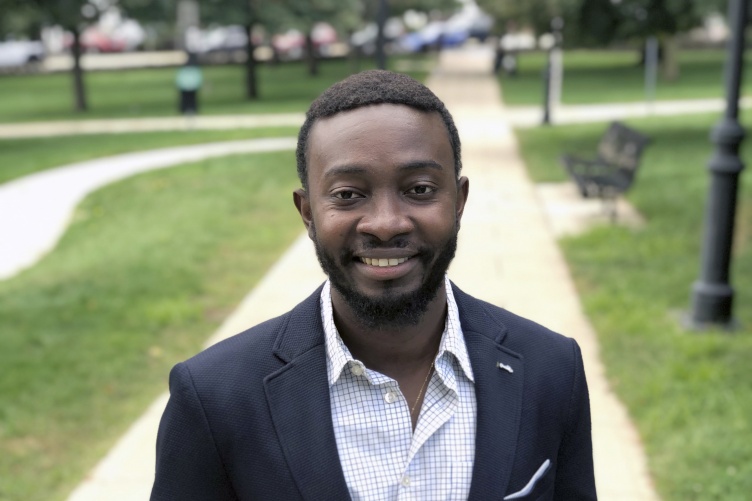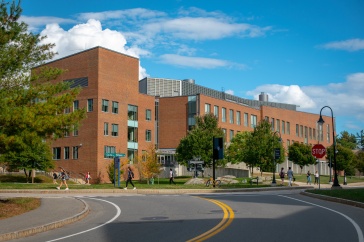
In 2009, Aboubacar Konate ’17 arrived in Boston from his native Guinea not able to speak a single word of English. He had left his West African homeland in the midst of a military coup d'etat that had soldiers patrolling the streets of Conakry, the country’s capital city where he lived, and residents living in fear, the threat of violence looming just around every corner.
Less than a decade later, Konate — better known as AK to most — had earned a civil engineering degree from UNH and landed a job as a structural designer in Boston. His journey from Guinea, a country known for political unrest and economic instability, to his current life as an engineering professional on the rise is a result of resilience, determination and a lot of hard work. A commitment to school and learning helped open doors all along the way.
As a lead teacher for the Dinah Whipple STEAM Academy held on the UNH Durham campus this past July, Konate got a chance to share his personal story with a group of middle and high school students. Offered through UNH Tech Camp, the weeklong program explores a range of engineering principles as well as topics related to the Black experience. It was established two years ago to stimulate interest in STEM-related subject areas among students of color who are traditionally underrepresented in the field. The program is offered at no cost to participants.
  |
| Aboubacar Konate (far right) with students in the Dinah Whipple STEAM Academy. |
“I love teaching at the camp, it’s the highlight of my year,” says Konate, who also taught in the program last summer. “I’ve always been passionate about giving back and helping others. Where I came from, there weren’t a lot of educational opportunities, so I understand what a difference a program like this can make, especially for students of color.” His own African heritage, he adds, also helps bring the lessons about Black history to life.
Instability and near constant change have helped define Konate’s life since childhood. When he was just nine years old, his mother passed away due to complications related to a difficult childbirth. His father, a mechanic by trade, left the country soon thereafter to seek work and new opportunities for the family. For the next eight years, Konate lived with his uncle and focused his attention on school and sports, excelling in both.
When political upheaval made living in Conakry unsafe, Konate joined his father in Boston, where he had settled and remarried. At the time, he spoke only French and Mandingo, a tribal language in Guinea, and enrolled at an English language school to help develop his communication skills. Within four months, he was speaking well enough to transfer to Boston English High School, where he entered as a junior.
Due to a turbulent home life, Konate found refuge at school, where he pushed himself both academically and as a three-sport athlete. “School was my safe haven and I spent as much time there as possible,” he says. Konate went on to become an honors student and graduate second in his class.
As a high school student, Konate participated in an internship program at John Hancock Life Insurance in Boston. A mentor there — also of African descent — encouraged him to apply to UNH, where he was ultimately accepted. Generous scholarships and financial aid made the university his top choice.
Moving from culturally diverse Boston to Durham presented yet another big change and challenge. Konate was the only Black student in his engineering program at the time and one of only a handful on campus. He eventually found a peer group through multicultural student organizations and as a member of the UNH Chapter of National Society of Black Engineers. Professor Carmela Amato-Wierda, director of UNH Tech Camp, was the faculty advisor to the group and became another important mentor in his life, ultimately convincing him to join the Dinah Whipple team.
“When I share my story at the camp, the students listen closely and become more engaged in class,” says Konate. “They understand that I came from nothing and worked hard to get where I am. They know that they should take advantage of all the resources at their fingertips.”















































